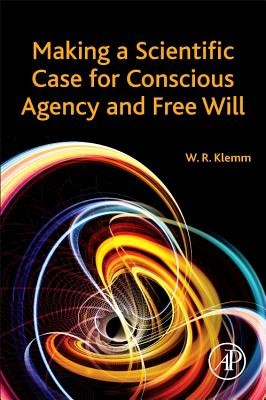
- Išsiųsime per 10–14 d.d.
- Autorius: William R Klemm
- Leidėjas: Academic Press
- ISBN-10: 0128051531
- ISBN-13: 9780128051535
- Formatas: 15.2 x 22.9 x 0.7 cm, minkšti viršeliai
- Kalba: Anglų
- Extra -15 % nuolaida šiai knygai su kodu: ENG15
Making a Scientific Case for Conscious Agency and Free Will + nemokamas atvežimas! | knygos.lt
Atsiliepimai
Aprašymas
Making a Scientific Case for Conscious Agency and Free Will makes a series of arguments that certain human behaviors are impossible to explain in the absence of free will, and that free will emerges from materialistic processes of brain function. It outlines future directions for neuroscience studies that can harness emerging technologies and tools for systems-level analysis.
All humans have the sensation that they consciously will certain things to happen and that, in the absence of external constraints, they are free to choose from among alternatives. This notion of free will is deemed obvious by the average person based on common experience. Free will is frequently defended with arguments stemming from social, legal, philosophical, and religious perspectives. But these arguments appeal to consequences--not causes--of choices and decisions. In the past 3 decades, debate has raged within the scientific community over whether free will is in fact an illusion. Because free will would require conscious agency, the supporting corollary is that consciousness itself cannot do anything and is merely an observer rather than an actor.
EXTRA 15 % nuolaida su kodu: ENG15
Akcija baigiasi už 2d.22:27:58
Nuolaidos kodas galioja perkant nuo 10 €. Nuolaidos nesumuojamos.

- Autorius: William R Klemm
- Leidėjas: Academic Press
- ISBN-10: 0128051531
- ISBN-13: 9780128051535
- Formatas: 15.2 x 22.9 x 0.7 cm, minkšti viršeliai
- Kalba: Anglų
Making a Scientific Case for Conscious Agency and Free Will makes a series of arguments that certain human behaviors are impossible to explain in the absence of free will, and that free will emerges from materialistic processes of brain function. It outlines future directions for neuroscience studies that can harness emerging technologies and tools for systems-level analysis.
All humans have the sensation that they consciously will certain things to happen and that, in the absence of external constraints, they are free to choose from among alternatives. This notion of free will is deemed obvious by the average person based on common experience. Free will is frequently defended with arguments stemming from social, legal, philosophical, and religious perspectives. But these arguments appeal to consequences--not causes--of choices and decisions. In the past 3 decades, debate has raged within the scientific community over whether free will is in fact an illusion. Because free will would require conscious agency, the supporting corollary is that consciousness itself cannot do anything and is merely an observer rather than an actor.




Atsiliepimai